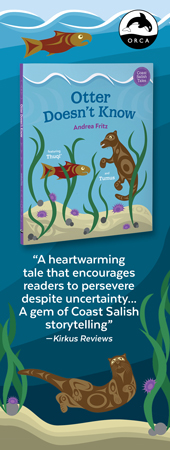Keeping Body & Soul Together
April 02nd, 2008
In Issue # 42 of The Capilano Review, check a special edition that focuses on Northern Poets in BC, George Stanley puts his finger on the pulse of the Northern writing scene. He begins his introduction by considering the value of fellowship for Northern poets and what this community means for writers. These poets of Northern BC that George Stanley speaks of, are indeed indivisible from their place, and are “as much part of the landscape” as the place they stand on.
Place is what Si Transken speaks to as the driving force behind seven creative writing anthologies; two of which she has edited and contributed to since coming to live in Prince George, This Ain’t Your Patriarch’s Poetry Book (Transformative Collective Press, 2003) and the forthcoming Making Noise, Northern Women (UNBC Press, 2007), co-edited with Robert Budde.
As both a poet and a professor of Social Work at UNBC, Si Transken speaks to poverty and pain, and of the complexity of linked oppressions, in the context of a larger community of activists and writers. Her sense of place includes a “writerly” community that she acknowledged in 2006, “My belief is that one of the most special and vital aspects of northern writers writing is that we are teaching and learning; listening and hearing each other into a space of community.”
As a social activist working in the fields of anti-poverty, anti-racism, and feminism, Transken is also a vegan and animal advocate who struggles with northern issues such as logging and hunting.
Written from Vanderhoof, Gillian Wigmore’s nature prose and poetry in Home when it moves you (Creekstone Press, 2005) and soft geography (Caitlin Press, 2007) is almost athletic and does not use language in any superfluous way; it is not overtly nostalgic or romantic but instead speaks from within nature, from the place she grew up in and knows like kin.
Donna Kane (Ft. St John) writes poetry in Somewhere, a Fire (Hagios, 2004) that reaches beyond metaphors about nature to hinge itself on the possibility of creating an understanding—both of humanity and of nature. Her poetry considers loneliness, nostalgia and love but also infuses nature with a meaning that does not detract from its actuality, does not deter us from its physicality—its realness. Her fox, her dead gopher, her moose, her fields, her ponds, sloughs, or frogs exist as themselves, and crop up and instil extra meaning in her poems, crystallizing the moment, creating a slowing down of time which allows the reader to notice the minutiaeu of the connected world. Nature and other animals are not just props in some elaborate play about humans only.
Joan Conway’s 2006 mixed-media show in the Terrace Art Gallery centred on women’s expressions/constructions of nature, combining poetry, painting, and photography. Her sensual writing reflects the understandings of her bioregion and how women and the north are often marginalized. Having given birth to her two sons at her remote home in what was once the pioneer settlement of Doreen, Conway has a sense of nature that is neither romantic or nostalgic. Consequently nature, family, and community are never apolitical in her writing.
These poets demonstrate that we cannot extricate ourselves from nature. The politics of nature and culture are inextricably linked. Within the poetry of these northern B.C. poets lies their attendance to the details and nuances of nature. Their politics are expressed in their affiliations as they see themselves inextricably as part of their environments.
Essay Date: 2007

